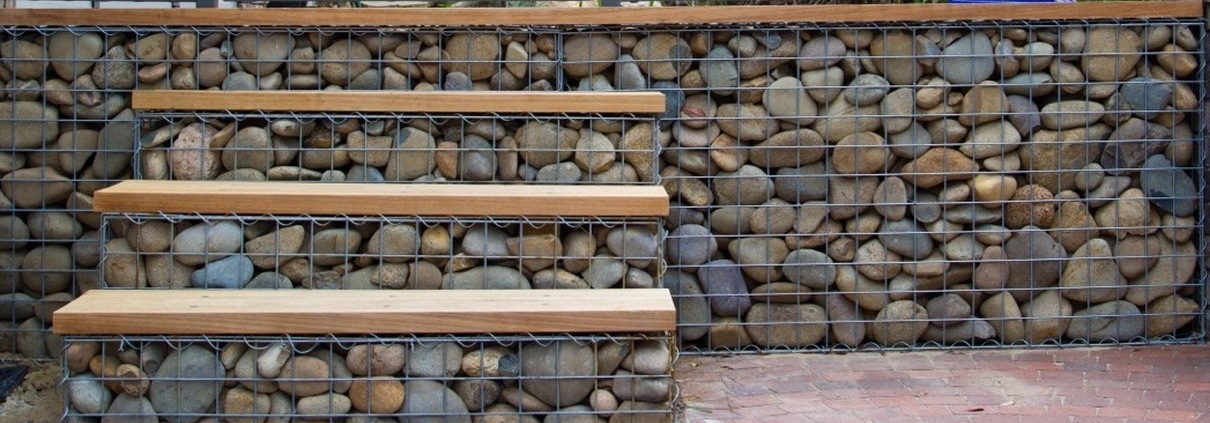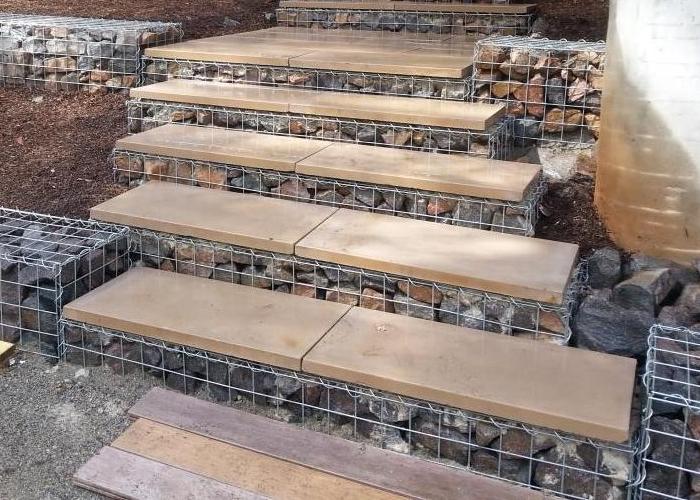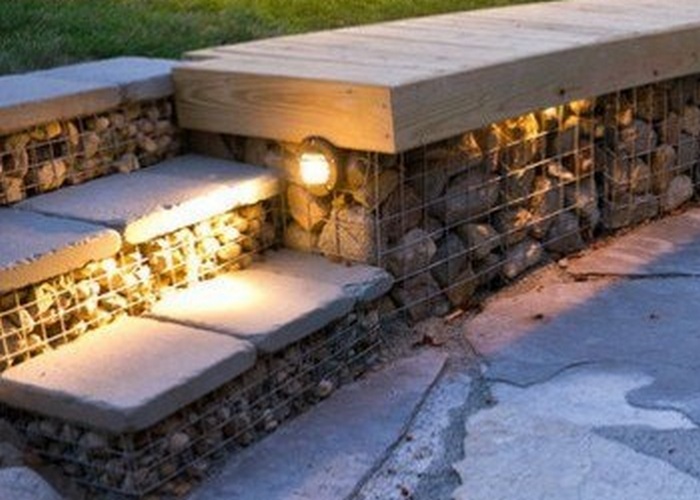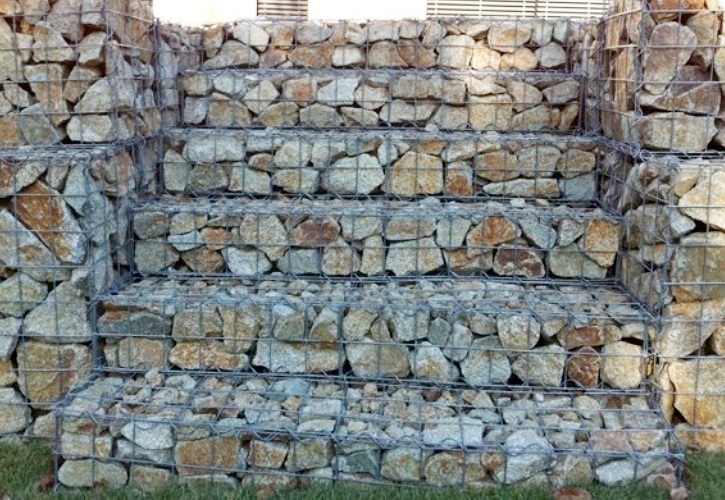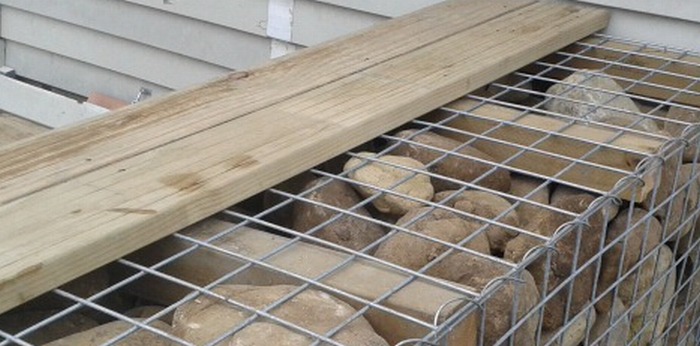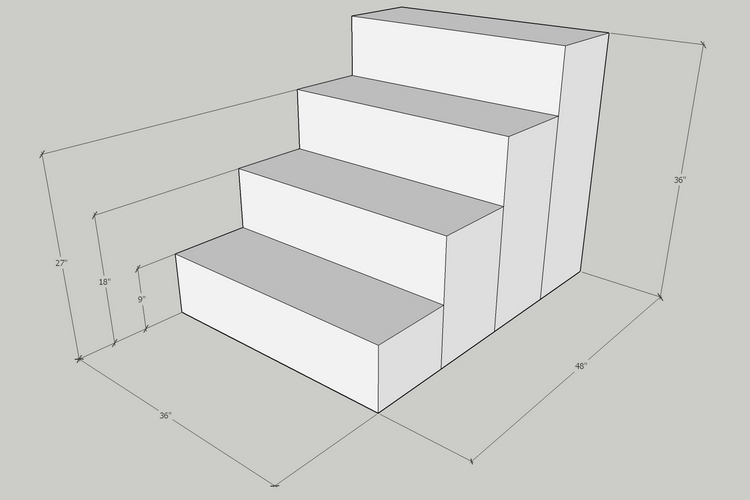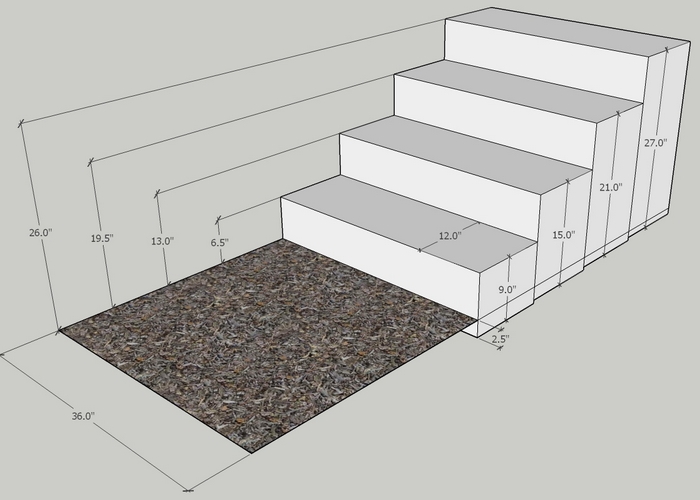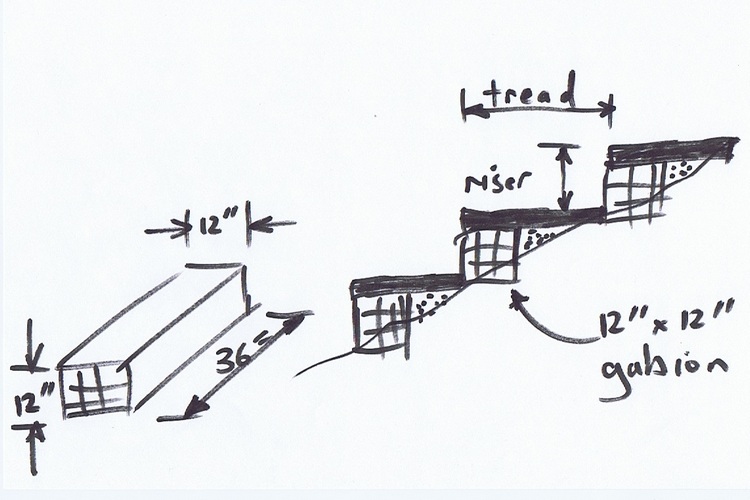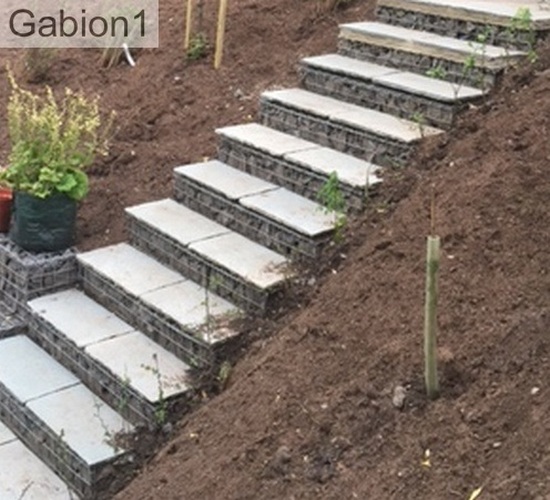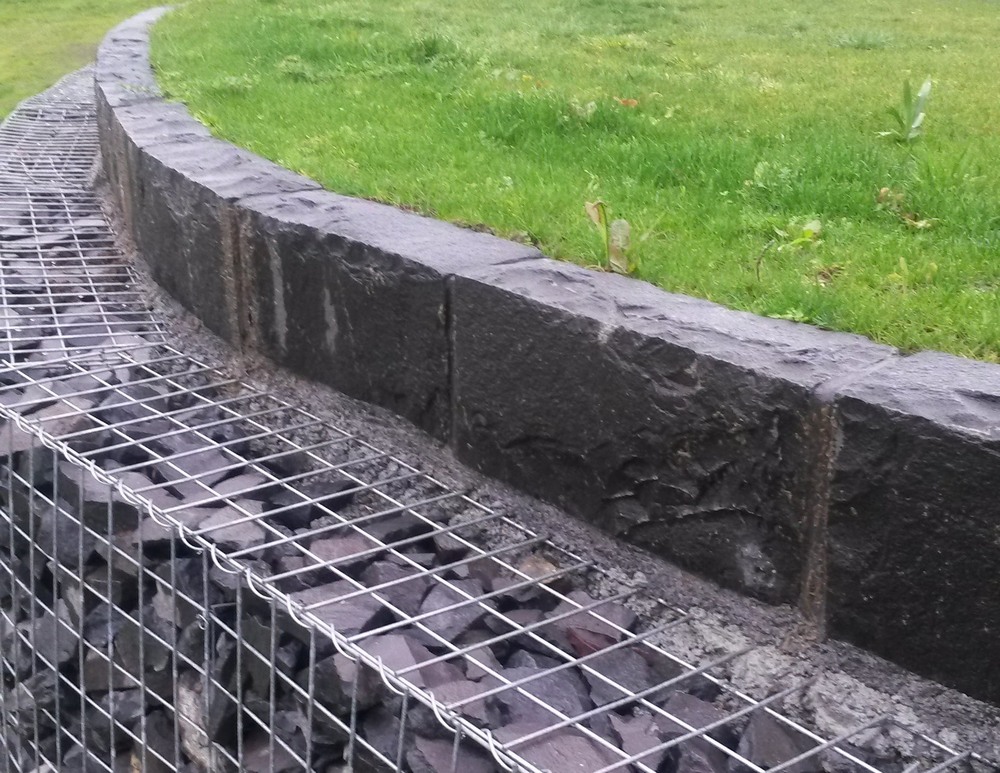Which mesh to use for gabion steps
Angular rock is the best gabion fill as it provides a good interlock and therefore less deformation of the face occurs. When using rounded river rock as gabion fill, it is recommended that you use the heavier 5ga (3/16th”) gabion baskets, which are less likely to deform under load.
4ga wire (which is 44% stronger than 5ga) is the preferred choice where an uniform architectural look is required, the gabions are likely to be sat or walked on, and when building steps
For more info on mesh size, deflection information and my youtube video on mesh rigidity, check out
Gabion wire mesh size/
Often the treads are covered with a paving stone
Or lumber capping
Hundreds of different sized gabions for steps
Our gabion sizes are in 3″ increments, (the mesh size)
heights and thickness’s are available in
9″, 12″, 15″, 18″, 21″, 24″,……. up to 60″ tall or thick
We can make a gabion for almost any sized step, check out our price and size information
Or email us with your required sizes and quantities, and we will get back to with costings
Gabion stairs with no capping
This gives a more rustic finish to your project.
Lumber Bearers
Placing lumber bearers inside the gabion, allows you to attach decking treads to the gabion stairs
Tread to Riser formula
Riser + riser + tread = 25″
for example 5″ + 5″ + 15″ = 25″
or 6.5″ + 6.5″ + 12″ = 25″
Gabions built on grade
When building gabions on grade the riser to tread ratio, may not be ideal.
Different height foundations
By slightly burying the gabion, the tread height can be optimised.
Making the steps easier to walk up.
Keying the gabions into the hillside
By creating benches or keying into the hillside, you may able to create terraces and gabion steps as required.
Making the steps easier to walk up.
Cement mortar binds with gabion mesh
The cement mortar binds with the gabion mesh, allowing you to attach paving slabs and other stone to the gabion stairs as required.

